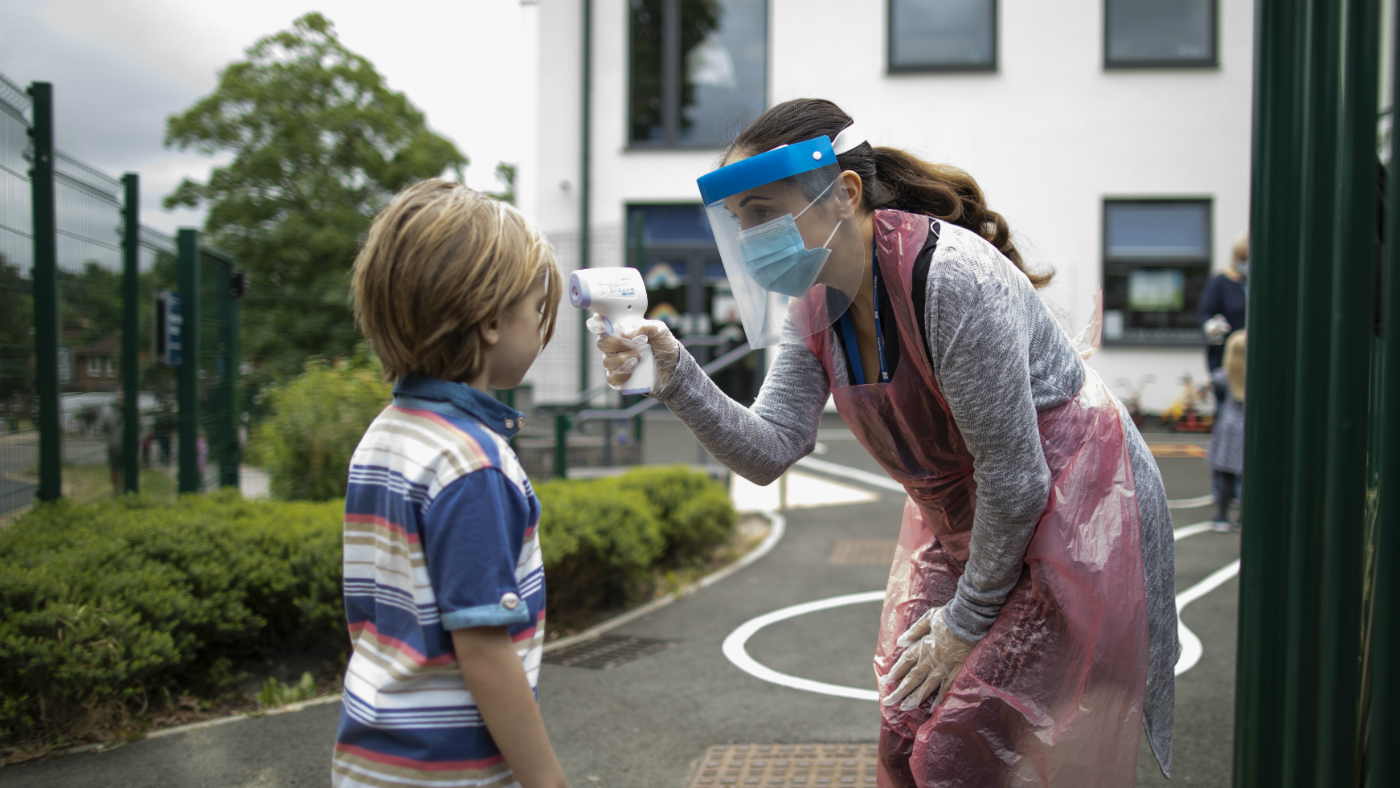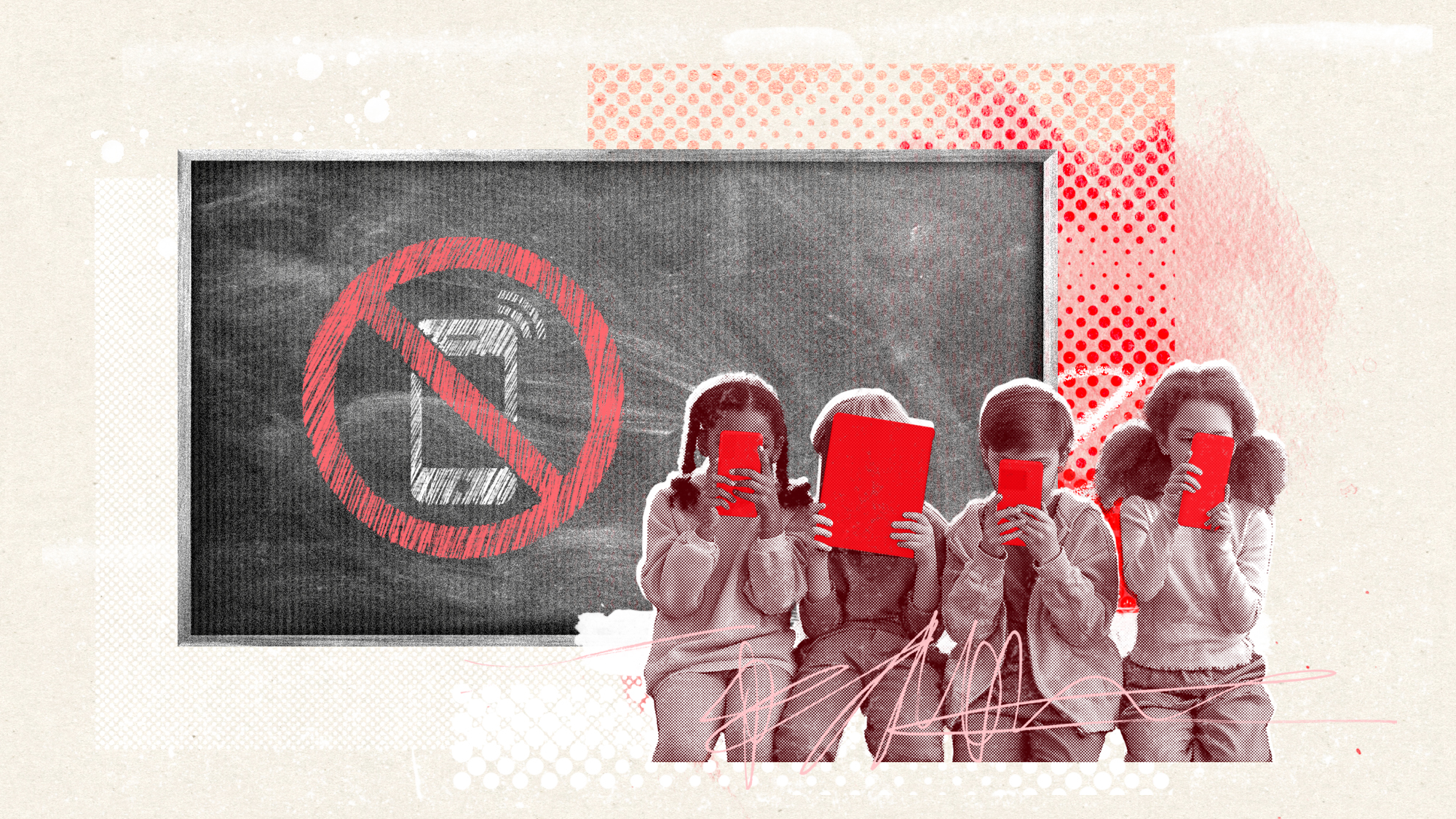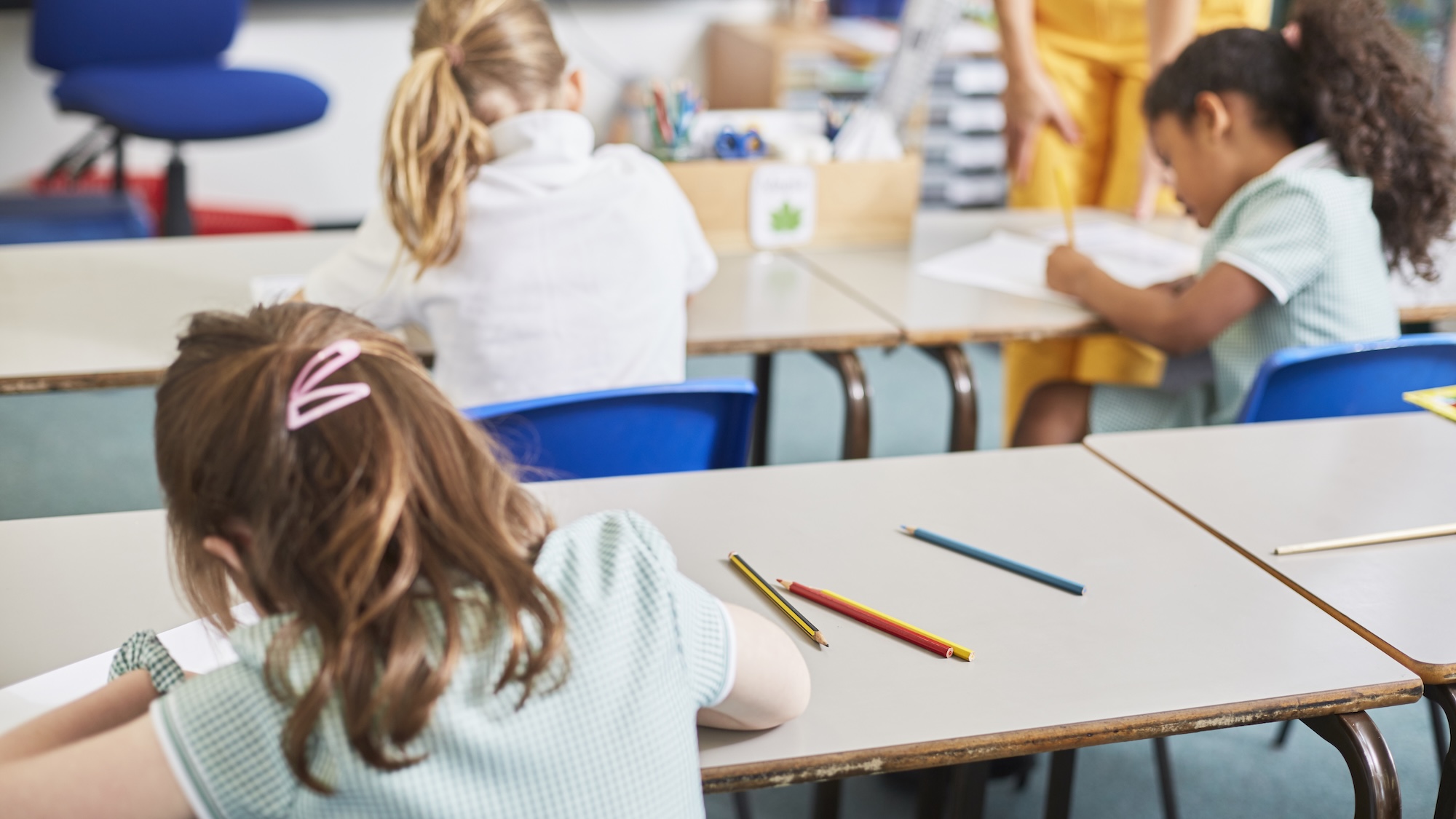How schools will be different when they reopen their doors to students
Increased hygiene measures and staggered starting times to become the new normal

A free daily email with the biggest news stories of the day – and the best features from TheWeek.com
You are now subscribed
Your newsletter sign-up was successful
The largest union of headteachers in the UK has announced that a majority of schools will be ready to welcome back all pupils when term starts in September - although what they find on their return may be quite different from what they left in March.
Despite the introduction of an array of mandatort safety measures over the summer, the National Association of Head Teachers (NAHT) confirmed that 97% of schools were ready to reopen on schedule.
However, the union’s general secretary, Paul Whiteman, warned that schools cannot introduce “any more last-minute plans”, a reference to this week’s U-turn on the use of masks in schools in England, the Daily Mail says.
The Week
Escape your echo chamber. Get the facts behind the news, plus analysis from multiple perspectives.

Sign up for The Week's Free Newsletters
From our morning news briefing to a weekly Good News Newsletter, get the best of The Week delivered directly to your inbox.
From our morning news briefing to a weekly Good News Newsletter, get the best of The Week delivered directly to your inbox.
Face masks in secondary schools
Much has been made of the government’s inconsistent messaging on the use of masks in schools. Boris Johnson announced this week that secondary schools in high-risk areas of England must ensure all pupils in year seven and above wear face coverings in corridors and communal areas.
The government has “left it up to head teachers” in regions without high infection rates to choose whether to introduce the masks, The Times reports. A survey of schools by the paper found “some will insist all secondary pupils wear them in corridors and other communal areas, with one making them mandatory in the classroom”.
Enhanced hygeine
A free daily email with the biggest news stories of the day – and the best features from TheWeek.com
The government has advised head teachers to introduce more stringent hygiene practices to reduce the risk of the disease spreading among students and staff.
Student hygiene will be of “paramount importance, with newly installed outdoor basins encouraging regular hand washing”, The i reports. Additional cleaning staff will also “routinely deep clean the schools”, the paper adds.
Quarantine
The government has also insisted that schools keep pupils with Covid-19 symptoms, or with family members who show symptoms, away from school.
No. 10 says it wants schools to ensure that “pupils, staff and other adults do not come into the school if they have coronavirus symptoms, or have tested positive in at least the last ten days”.
Schools have also been asked to ensure that anyone who develops symptoms during the school day is sent home, which Downing Street says is an “essential action to reduce the risk in schools and further drive down transmission of coronavirus”.
Staggered start times
According to the BBC, a number of schools around the country plan to stagger start and finish times for pupils, without shortening the number of teaching hours each pupil receives.
The Times survey revealed that at least 200 schools are introducing staggered times, with earlier or later starts for different year groups. The Academies Enterprise Trust, which runs 52 schools in England, said most of its institutions would have staggered starts and finishes.
Student and staff bubbles
The government says it wants to introduce a system of “bubbles” aimed at “reducing the number of contacts between children and staff”.
“This can be achieved through keeping groups separate (in ‘bubbles’) and through maintaining distance between individuals,” the government schools portal says, noting that these are “not alternative options and both measures will help” depending on the demographics of the children being regulated.
For younger children the emphasis will be on separating groups, while for older students it will be on individual distancing.
The bubble system also means that schools should avoid large gatherings such as assemblies or collective worship with more than one group.
Saturday lessons
A less common solution not listed by the government is the introduction of Saturday opening for schools.
According to the Daily Mail, two academy trusts have confirmed that they will open on Saturdays to help children catch-up with work missed during the six months of school closures due to Covid-19.
-
 How the FCC’s ‘equal time’ rule works
How the FCC’s ‘equal time’ rule worksIn the Spotlight The law is at the heart of the Colbert-CBS conflict
-
 What is the endgame in the DHS shutdown?
What is the endgame in the DHS shutdown?Today’s Big Question Democrats want to rein in ICE’s immigration crackdown
-
 ‘Poor time management isn’t just an inconvenience’
‘Poor time management isn’t just an inconvenience’Instant Opinion Opinion, comment and editorials of the day
-
 The pros and cons of banning cellphones in classrooms
The pros and cons of banning cellphones in classroomsPros and cons The devices could be major distractions
-
 School phone bans: Why they're spreading
School phone bans: Why they're spreadingFeature 17 states are imposing all-day phone bans in schools
-
 Schools: The return of a dreaded fitness test
Schools: The return of a dreaded fitness testFeature Donald Trump is bringing the Presidential Fitness Test back to classrooms nationwide
-
 Send reforms: government's battle over special educational needs
Send reforms: government's battle over special educational needsThe Explainer Current system in 'crisis' but parents fear overhaul will leave many young people behind
-
 Education: Can public schools be religious?
Education: Can public schools be religious?Feature A Supreme Court seems ready to rule in favor of religious charter schools in Oklahoma, which could reshape public education
-
 America's academic brain drain has begun
America's academic brain drain has begunIN THE SPOTLIGHT As the Trump administration targets universities and teachers, educators are eying greener academic pastures elsewhere — and other nations are starting to take notice
-
 Schools' Send crisis: how can it be fixed?
Schools' Send crisis: how can it be fixed?Today's Big Question Government urged to reform support for children with special educational needs and disabilities and save councils from bankruptcy
-
 Unschooling: the radical education trend raising eyebrows
Unschooling: the radical education trend raising eyebrowsUnder the radar Some parents are letting their children lead their education